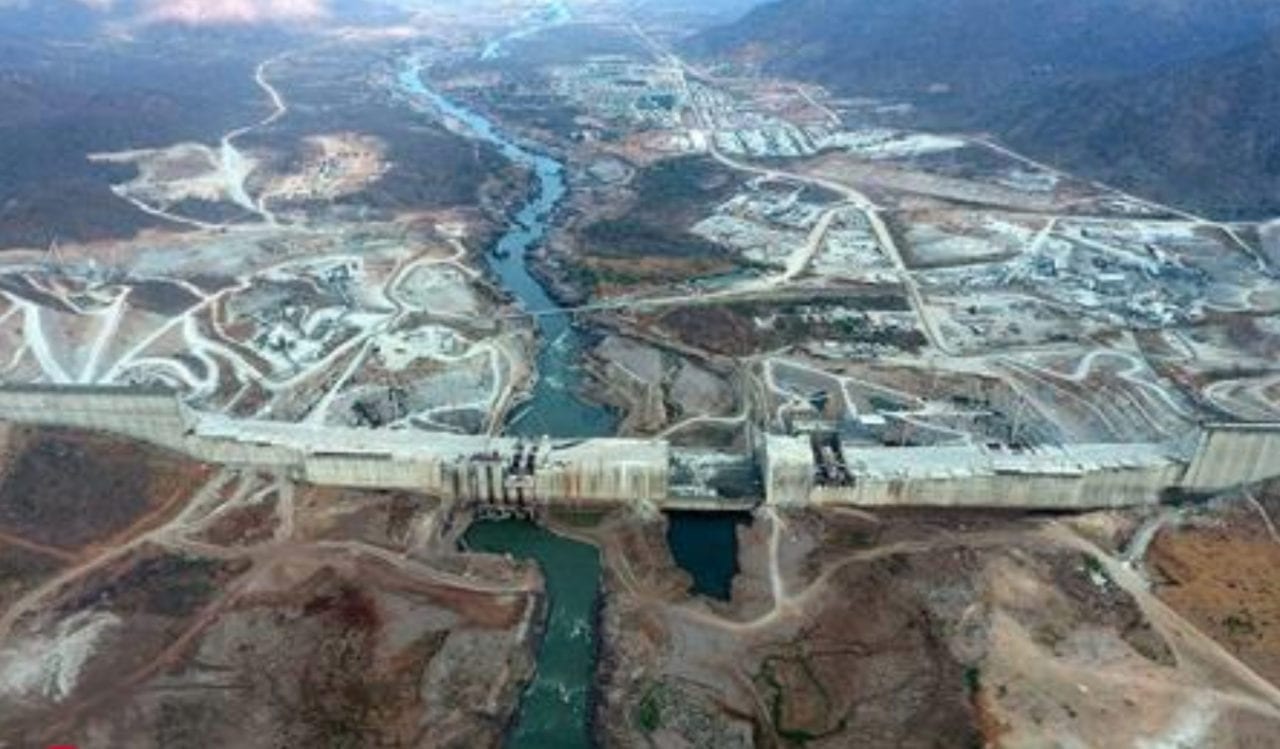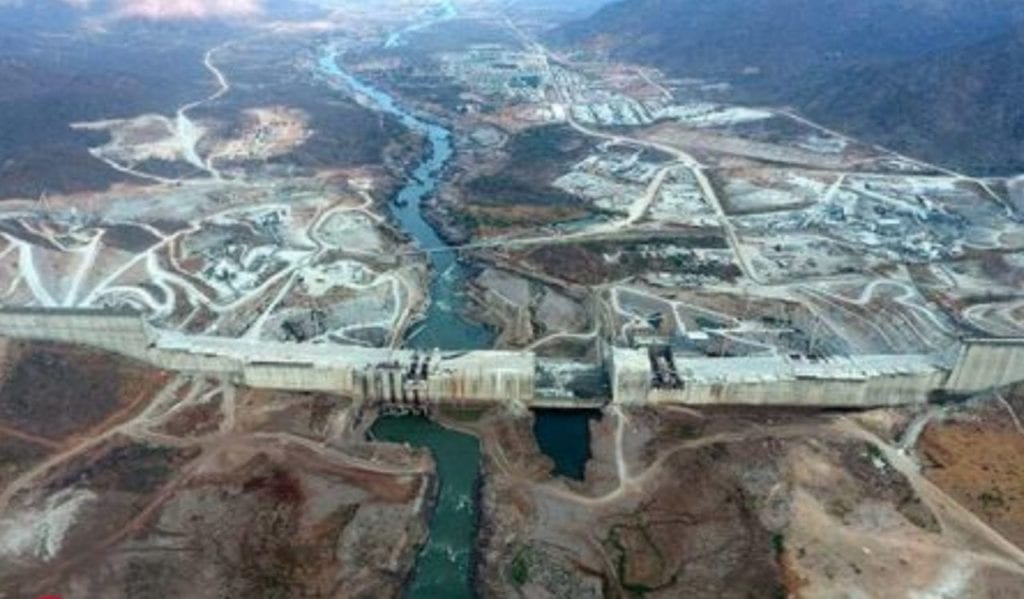Ethiopia Outlines $40 Billion Plan as GERD Hydro Startup Nears
The post Ethiopia Outlines $40 Billion Plan as GERD Hydro Startup Nears appeared first on POWER Magazine.

Ethiopian officials have said they are moving closer to commissioning the Grand Ethiopian Renaissance Dam (GERD) hydropower installation, part of 71 power projects included in a $40 billion investment package to increase the country's electricity generation over the next decade.
The 6,450-MW GERD project, being built on the Blue Nile River and set to more than double Ethiopia's current power generation capacity, also is expected to reduce the flow of Nile River water to Sudan and Egypt as the dam's reservoir is filled. Disputes about water rights, along with concerns about water supply and the safety of the dam, have caused years of tension between Ethiopia and the other countries, who depend on water from the Nile to serve their populations. The countries have said the GERD threatens not only their water but also their national security.
Ethiopia, which began building the dam in 2011, has said it will fill the reservoir in stages, a process that could take up to seven years. The second year of filling was completed in July, according to government officials. The United Nations Security Council, meanwhile, on Sept. 15 urged Ethiopia, Egypt, and Sudan to resume African Union-led talks to reach a binding deal about the dam's operation within a reasonable timeframe."
Egypt and Sudan had both called on the U.N. council to help resolve the dispute after Ethiopia began the second year of filling the reservoir. Ethiopian officials have repeatedly said they are opposed to any U.N. involvement. The three countries in 2015 signed a Declaration of Principles," under which the downstream countries-Egypt and Sudan-are not supposed to be negatively affected by the dam's construction, but Sudan and Egypt continue to express concerns about whether Ethiopia will honor their water rights as the dam begins operating.
Despite ongoing disagreements about the $4.6 billion GERD project, officials with Ethiopian Electric Power (EEP), the country's major energy provider, in August said Sudan presented a formal request to buy 1,000 MW of power from Ethiopia, although no announcement has been made about whether any of that electricity will be hydropower from the GERD. Officials with EEP have said other countries, including South Sudan, Kenya, and Djibouti, also are negotiating to purchase electricity from Ethiopia.
For more information and background on the GERD project, read Tensions Intensify as Ethiopia Readies to Start GERD Mega-Dam Turbines" at powermag.com.
Ethiopia's new power plan, announced in late August, is to increase its current 4,200 MW of generation capacity to about 35,000 MW by 2037, not only to have more power to serve the country's own people, but also to have electricity to export. Power Africa, a U.S.-backed group that works to bring electricity to sub-Saharan Africa, recently said just 45% of Ethiopia's population has access to electricity, and the figure drops to 32% in rural areas of the country.
Hydro, Wind, Solar, GeothermalThe GERD project will be the largest hydroelectric plant on the African continent, and would rank as the eighth-largest in the world. Energy officials from Ethiopia have announced a list of new projects they want to bring online over the next 10 years, led by GERD and 15 other hydropower installations.
The list also includes 24 wind projects, 17 geothermal, and 14 solar, as Ethiopia not only increases its use of renewable energy but also moves toward becoming a net exporter of power to other African nations.
 The Grand Ethiopian Renaissance Dam project is located about 500 kilometers northwest of Addis Ababa, Ethiopia's capital, in the region of Benishangul-Gumaz along the Blue Nile. Courtesy: WeBuild
The Grand Ethiopian Renaissance Dam project is located about 500 kilometers northwest of Addis Ababa, Ethiopia's capital, in the region of Benishangul-Gumaz along the Blue Nile. Courtesy: WeBuildKC Amase, an energy industry consultant in Africa, told POWER that, Like many other African countries, Ethiopia has a huge infrastructure gap that need urgent attention to drive economic development. Its power deficit is largely due to the growing population, industrialization and middle-class. Financing these 71 projects with about $40 billion cannot be funded by the state alone. This therefore creates an enormous opportunity for private sector involvement in special public private partnerships [PPPs]."
Amase said those partnerships to build energy infrastructure would bring benefits beyond more power generation. Even though there are concerns from their downstream neighbors like Egypt and Sudan, the Grand Ethiopian Renaissance Dam when completed is expected to add 6.4 GW [of] hydropower to the nation's current 4.5-GW capacity to support new industry expansions and create jobs for youth. There are other energy investment opportunities that investors can benefit from like solar and sustainable alternatives."
Financial SupportAndualem Siae, executive officer of Ethiopian Electric Power (EEP), has said the country's government will augment funding of the planned projects with financial support from private and public partnerships, as Amase noted. Siae said that funding will be in addition to money from the African Development Bank, the World Bank, and other partners. As an example, the government said Saudi Arabia's ACWA Power will build two of the solar projects. Siae recently said AMEA Power, based in the United Arab Emirates, is negotiating to build the Aisha I wind farm project. Siemens Gamesa Renewable Energy already is building the 100-MW Assela wind farm near Iteya, about 150 kilometers south of Addis Ababa, Ethiopia's capital. Siae said potential developers also are bidding to build the other wind power installations.
Officials have said the first solar projects will be developed as part of the International Finance Corp.'s (IFC's) Scaling Solar" program. The IFC is the private sector financing arm of the World Bank.
Government officials recently said that in the past fiscal year, Ethiopia made almost $100 million from exports of energy to Djibouti and Sudan. An EEP official said about 1,000 MW of power is currently being exported. Officials have said that as new capacity comes online, Ethiopia will sell electricity to Kenya, and establish grid links to South Sudan, Uganda, Rwanda, Tanzania, and Yemen.
Several geothermal projects already are underway in Ethiopia, as the country looks to exploit the potential of the Rift Valley. The International Renewable Energy Agency (IRENA) in a recent report said about 900 MW of geothermal capacity is installed in the region, in Ethiopia and Kenya. The IRENA earlier had said geothermal capacity in the Rift could approach 20,000 MW.
GERD DisputeThe long-running dispute over the GERD installation has continued even as the project comes closer to commissioning. Several groups, including the U.N. and some U.S representatives, have made repeated attempts to revive negotiations between Egypt, Sudan, and Ethiopia. Sudanese officials in separate media interviews in recent weeks said Ethiopia has been unwilling to reopen talks to resolve disputes surrounding the project and its water use. Sudanese Prime Minister Abdalla Hamdok, in a recent interview with the Asharq News channel, said his country wants an agreement on the GERD dispute within the framework of international law.
Sudan and Egypt have said they want a legally binding agreement on the filling and operation of the GERD, and have said they want a deal that guarantees a mechanism for resolving future disputes. Ethiopian officials have said they will only honor an agreement with non-binding guidelines about the dam's water use and operation.
Ethiopia on July 19 announced it had completed the second filling of the dam's reservoir with enough water to begin generating hydropower. Sudan and Egypt both expressed their opposition to that move because it came without an agreement among the countries about filling and operating the project. Egypt has long held that a 1959 agreement between Egypt and Sudan is the legal basis for allocation of Nile River waters, but Ethiopia and other African countries have rejected that argument.
Egypt earlier this year went so far as to threaten military action against the GERD project if Ethiopia went ahead with the second filling of the reservoir, although Sameh Shoukry, Egypt's foreign minister, walked back those comments in an interview with Bloomberg last week. Shoukry said, Egypt's president has never indicated that he would take military actions against Ethiopia," saying comments from Egypt that all options are on the table" did not include a show of force. I think nobody seeks conflict," said Shoukry. On [the] contrary, we seek a peaceful resolution to solve this issue [based] on the international law and based on the best practice."
Officials now say they expect the countries will likely come together to forge an agreement ahead of the next scheduled filling, which would probably occur during next summer's rainy season-about two years after the African Union began mediating the dispute in June 2020.
The 15-member U.N. Security Council in its statement Wednesday said the three countries should take forward the AU-led negotiation process in a constructive and cooperative manner. The Security Council encourages Egypt, Ethiopia, and the Sudan to resume negotiations at the invitation of the Chairperson of the African Union to finalize expeditiously the text of mutually acceptable and binding agreement on the filling and operation of the GERD, within a reasonable time frame."
Some council members have said they are hesitant to become involved in the dispute because it could set a precedent and lead to other countries to ask the U.N. to intervene in water matters. The council's statement Wednesday noted that, saying, The Security Council underscores that this statement does not set out any principles or precedent in any other transboundary water disputes."
-Darrell Proctor is a senior associate editor for POWER (@POWERmagazine).
The post Ethiopia Outlines $40 Billion Plan as GERD Hydro Startup Nears appeared first on POWER Magazine.